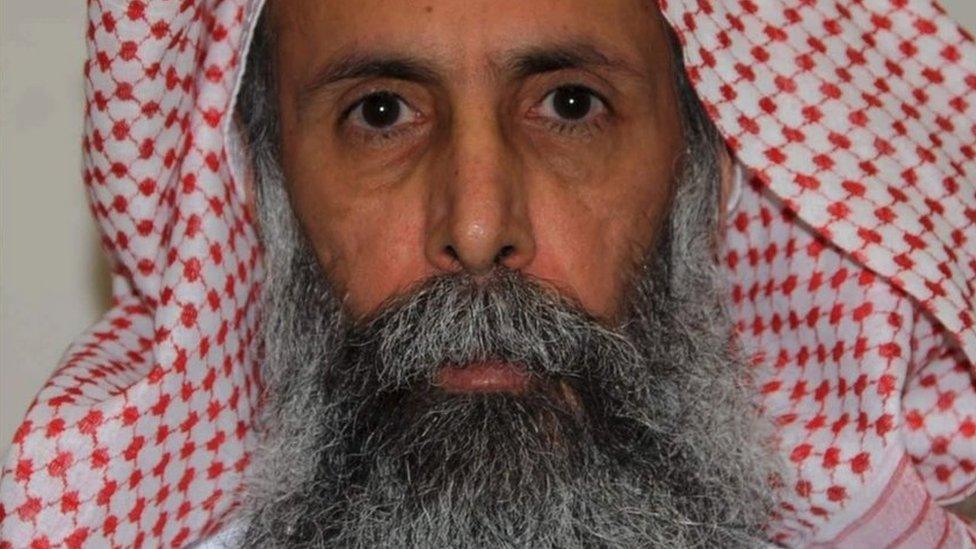Sheikh Nimr al-Nimr: Anger at execution of top Shia cleric
- Published
Protesters turned out in the Qatif region after news of the execution broke
Saudi Arabia's execution of prominent Shia cleric Sheikh Nimr al-Nimr has sparked anger and protests in Shia communities across the region.
Shia-led Iran, Sunni-led Saudi Arabia's main regional rival, has led the official condemnation of the execution.
Protests have taken place in Saudi Arabia's Shia-majority Eastern Province, in Bahrain and several other countries.
Sheikh Nimr was a vocal supporter of mass protests in the province in 2011.
He was a prominent, outspoken cleric who articulated the feelings of those in Saudi Arabia's Shia minority who feel marginalised and discriminated against, the BBC's Middle East editor Alan Johnston reports.
He was among 47 people put to death on Saturday after being convicted of terrorism offences.
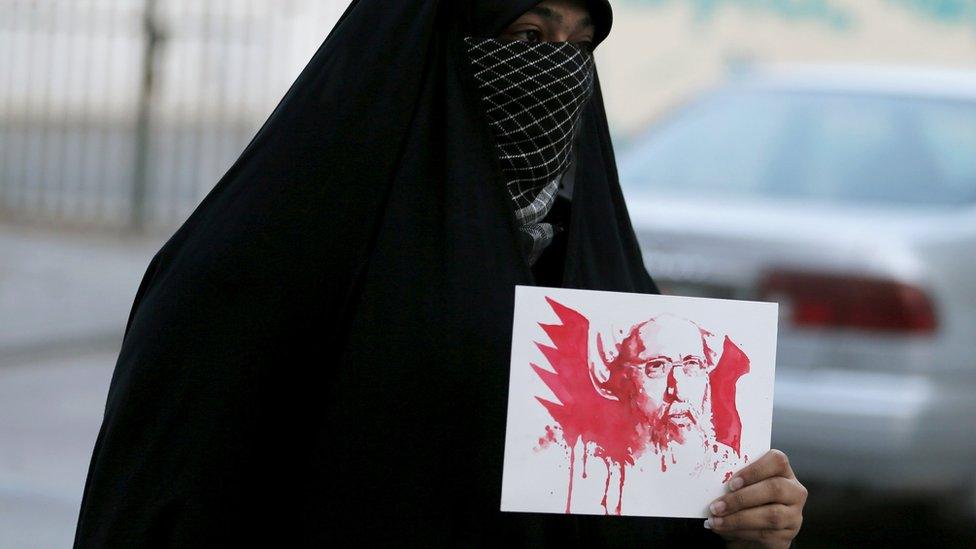
This woman in Bahrain took part in one of the many protests over the execution
In the early hours of Sunday morning local time, unconfirmed reports from Tehran said that the Saudi embassy in the Iranian capital had come under attack from protesters.
Iranian officials have been strident in their condemnation of the execution. The foreign ministry said the Sunni kingdom would pay a high price for its action, and it has summoned the Saudi charge d'affaires in Tehran in protest.
Iran's Revolutionary Guards Corps said a "harsh revenge" would be exacted for the execution, Iranian news agencies report.
Saudi Arabia in turn summoned the Iranian envoy "and handed him a strong-worded protest note on the aggressive Iranian statements", a foreign ministry statement said.
The website of Iran's Supreme Leader Ayatollah Khamenei posted a picture, external suggesting the execution was comparable to the actions of the so-called Islamic State group.
As the Shia power in the region, Iran takes huge interest in the affairs of Shia minorities in the Middle East, our correspondent reports, making it inevitable that the two countries would clash over Sheikh Nimr's treatment.
But one of the principal concerns of the Saudis is what they see as the growing influence of Iran in places like Syria, Iraq and elsewhere, he adds.
In other reaction:
Lebanon's Shia council called the execution a "grave mistake" while the Lebanese Shia Hezbollah militant group described the execution as an "assassination"
In neighbouring Bahrain, a country with a Shia majority who have complained of marginalisation at the hands of the country's Sunni ruling family, saw clashes between protesters and police.
In Iraq, prominent Shia cleric Moqtada al-Sadr called for "angry demonstrations", but said protests should be peaceful
Protests were also reported on Saturday in Yemen, Pakistan and Indian-administered Kashmir
The US said it was concerned the execution "risks exacerbating sectarian tensions at a time when they urgently need to be reduced"
At least one protest march was held in Qatif, in Saudi Arabia's Eastern Province, defying a ban on public protests.
Protesters shouted the slogans "The people want the fall of the regime", and "Down with the al-Saud family", reminiscent of the 2011 protests in the wake of the Arab Spring.
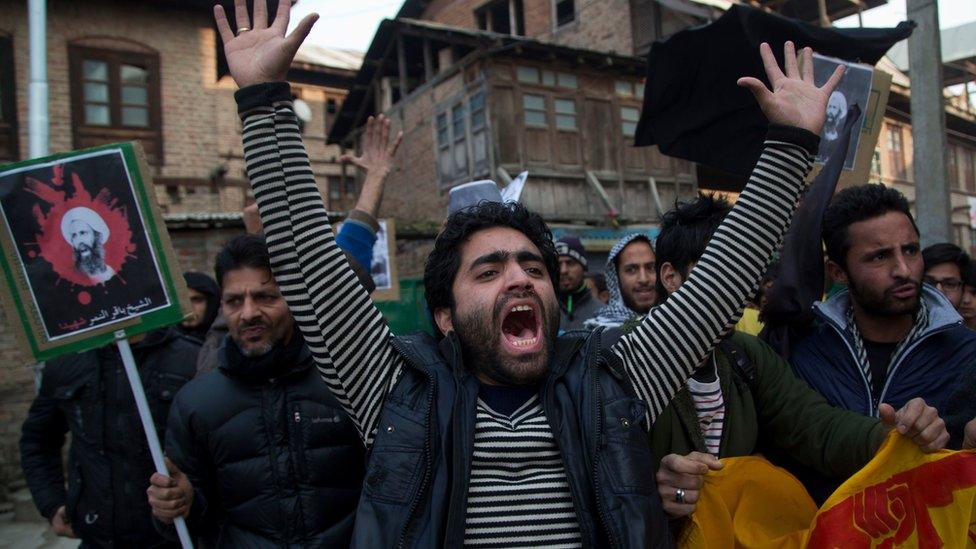
Shia Muslims in Kashmir joined the wave of protests after the executions
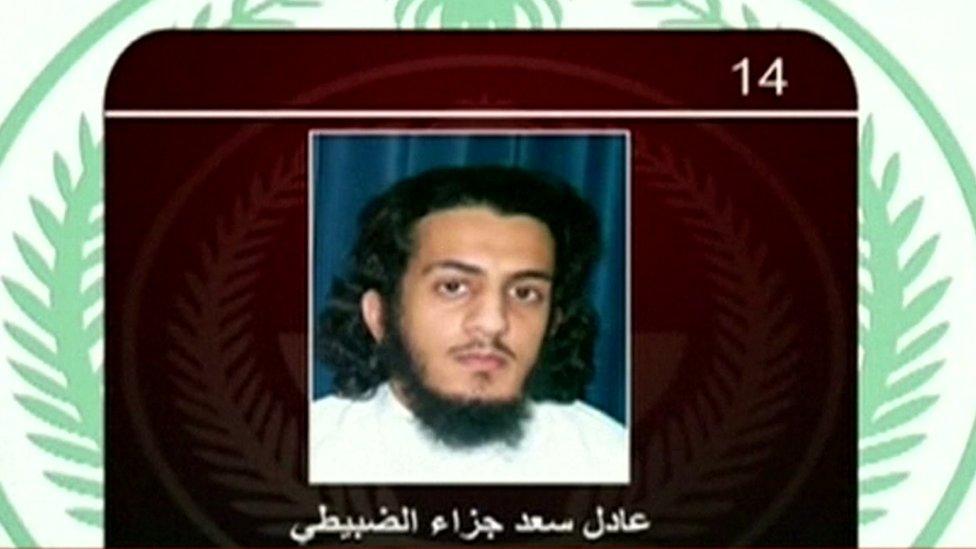
Adel Al-Dubayti, who was convicted over the death of a BBC cameraman, was among those put to death
Sheikh Nimr's arrest in 2012, during which he was shot, triggered days of protests in Eastern Province in which three people were killed.
Saturday's executions were carried out simultaneously in 12 locations across Saudi Arabia. Of the 47 executed, one was a Chadian national while another was Egyptian. The rest were Saudis.
The BBC understands that among those executed was a man convicted of involvement in a gun attack that killed Simon Cumbers, a cameraman on an assignment for the BBC, in 2004.
Adel al-Dubayti was sentenced in November 2014 for his role in multiple al-Qaeda attacks including the attack in the capital Riyadh which also left reporter Frank Gardner critically injured.
The international rights group Amnesty International said the 47 executions demonstrated the Saudi authorities' "utter disregard for human rights and life" and called Sheikh Nimr's trial "political and grossly unfair".

Who was Sheikh Nimr al-Nimr?
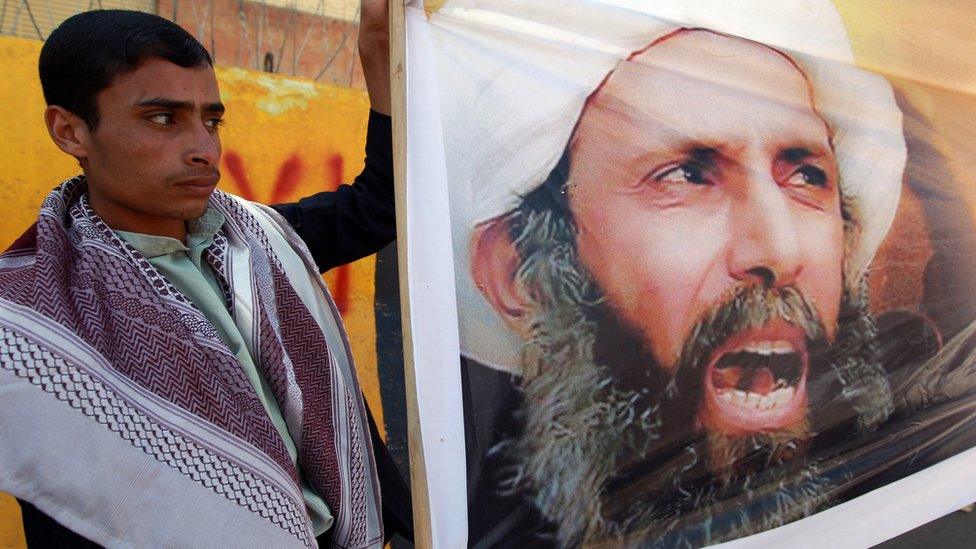
News of Sheikh Nimr's execution prompted an angry response from Shias across the region
In his 50s when he was executed, he has been a persistent critic of Saudi Arabia's Sunni royal family
Arrested several times over the past decade, alleging he was beaten by Saudi secret police during one detention
Met US officials in 2008, Wikileaks revealed, external, seeking to distance himself from anti-American and pro-Iranian statements
Said to have a particularly strong following among Saudi Shia youth

Sheikh Nimr's family said he had been found guilty, among other charges, of seeking "foreign meddling" in the kingdom but his supporters say he advocated only peaceful demonstrations and eschewed all violent opposition to the government.
Saudi authorities deny discriminating against Shia Muslims and blame Iran for stirring up discontent.
Saudi Arabia carried out more than 150 executions last year, the highest figure recorded by human rights groups for 20 years.
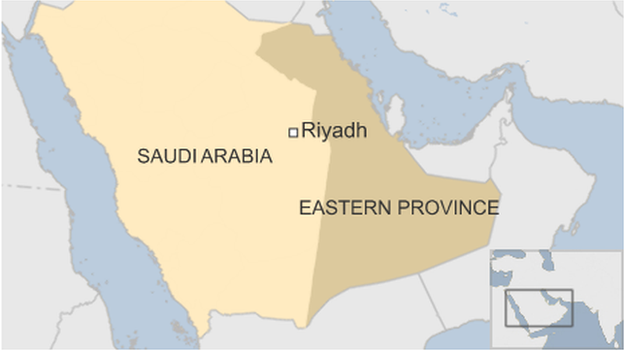
- Published15 October 2014
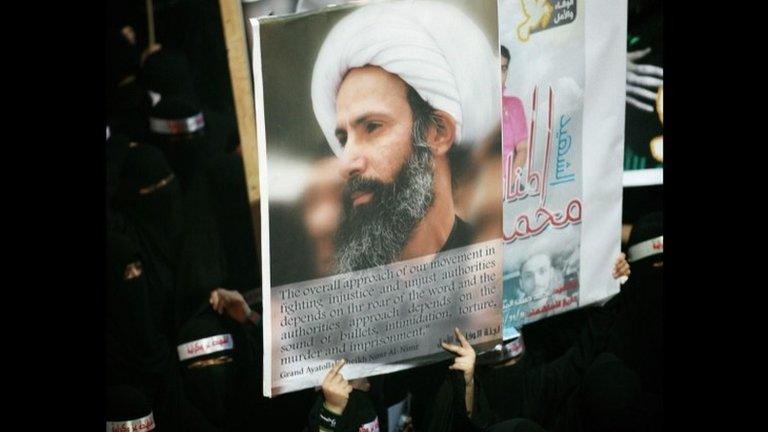
- Published4 January 2016
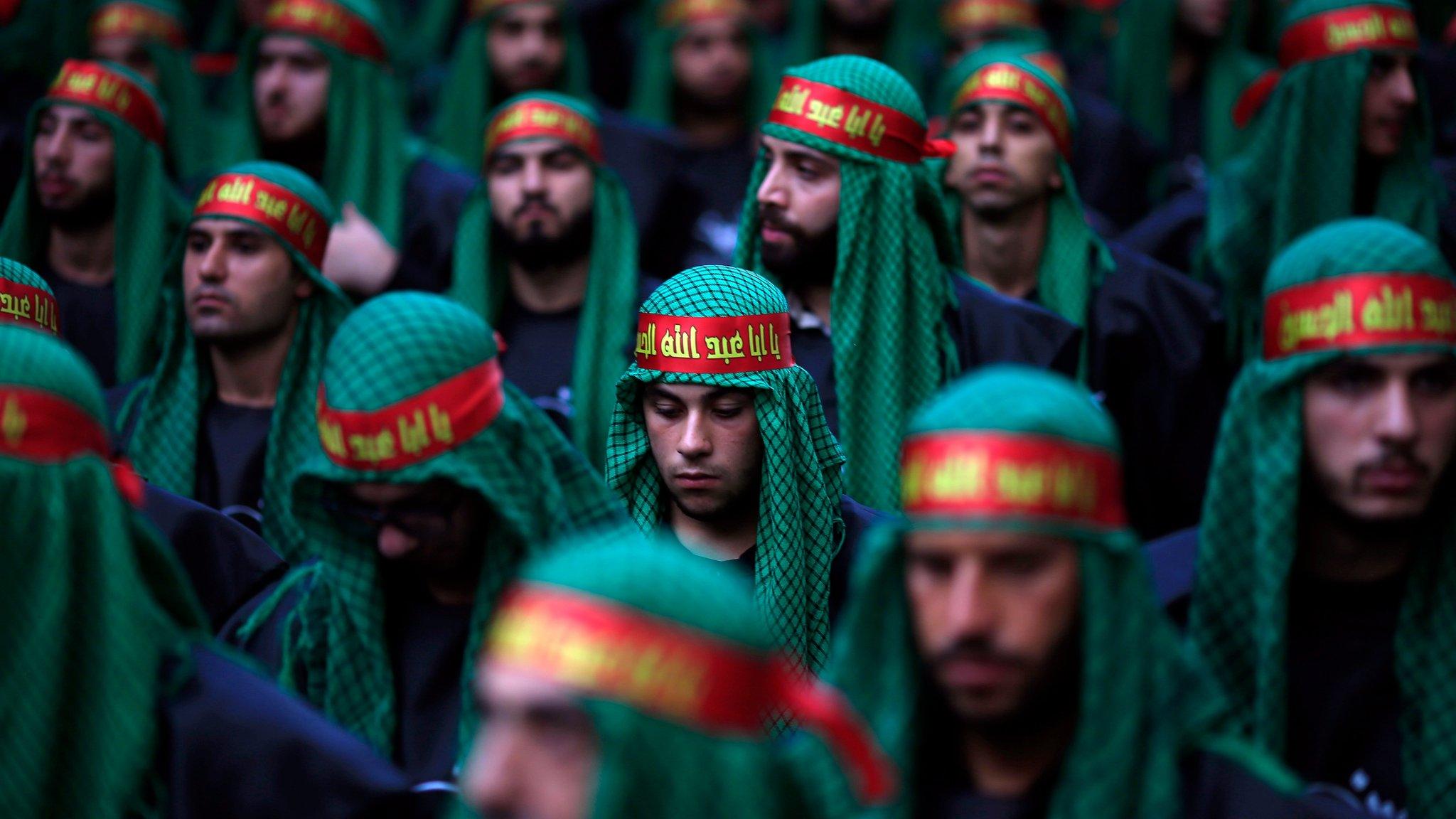
- Published2 January 2016
